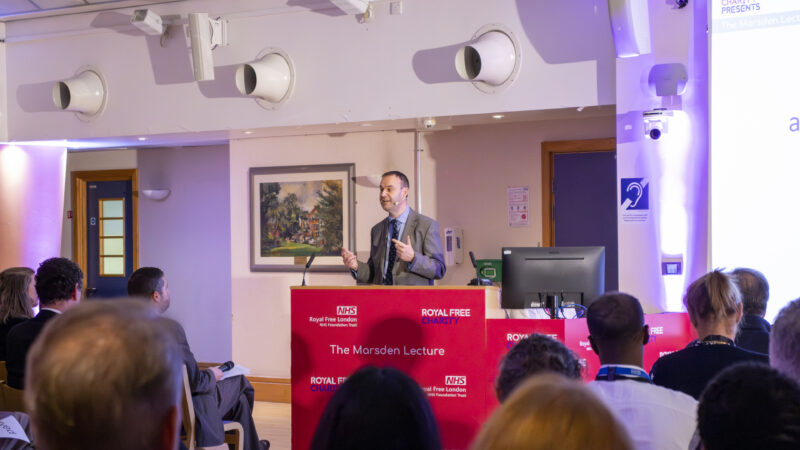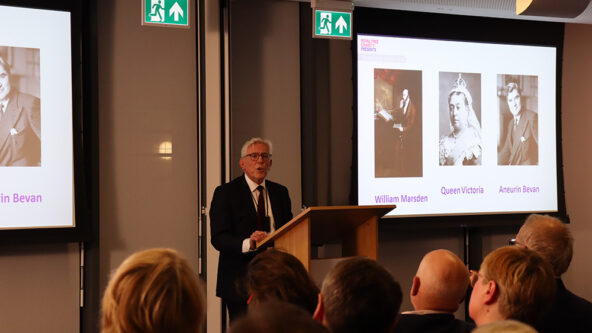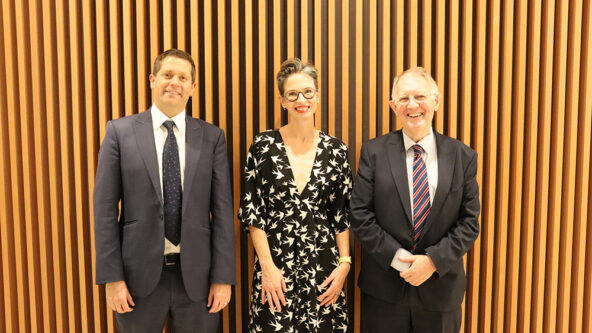From complex processes for donation acceptance to a lack of trust in the source of philanthropists’ wealth, Ramsbottom, chief executive of the Wolfson Foundation, discussed how contemporary practicalities and scrutiny can act as a deterrent to charitable giving.
Ramsbottom said: “We’re just about to enter the Christmas period, and part of the story recounted each year, of course, is the account of the Magi, mysterious men from the East bearing their gifts to the child Jesus. It’s one of the earliest recorded acts of philanthropy, we might argue.
“But of course, in 2024, the Magi would be treated with great suspicion. Their source of wealth is offshore. It is from an unknown provenance. It, I suspect, would not get through the standard gift acceptance committee.
“How do we balance a reasonable need for scrutiny with the overwhelming needs of society?”
Drawing on historical and contemporary examples, Ramsbottom explored how philanthropy’s role has evolved to being more necessary than ever before. He linked the Victorian conditions that led Dr William Marsden to establish the Royal Free Hospital with the principles that allowed the UK to respond swiftly to COVID-19, thanks to prior investment in health research by the state, industry, and philanthropy.
“How do we harness and encourage the emotional drive, the generosity of spirit and action that led William Marsden to set up the Royal Free Hospital, that caused Isaac Wolfson to establish the Wolfson Foundation, and that propelled the Wise Men across the desert?” Ramsbottom asked.
“In a world of scrutiny, it’s increasingly important to make the case for philanthropy. We need philanthropy not just for the funds that it can provide. It seems to me the state can never provide all of the answers to society’s problems. The money on the margins, then, can have an oversized impact, and not least in medicine and in health care.”
Jon Spiers, chief executive of the Royal Free Charity, added: “In referencing the timeless story of the Magi, Paul challenged us to connect their act of generosity with the pressing realities of our time.
“At the Royal Free Charity, we see the impact of this generosity every day. Earlier this year, we acquired one of the best PET scanners in the world for the Royal Free Hospital, a first for the NHS. So, thanks to philanthropy, we’re making a direct contribution to the Royal Free London’s performance in cancer diagnoses and treatment.”
By tying historical generosity to modern philanthropy, Ramsbottom’s lecture highlighted the ongoing relevance of charitable giving in addressing society’s challenges. From funding breakthrough medical research to supporting healthcare institutions like the Royal Free Hospital, philanthropy continues to shape the future of healthcare and beyond.



